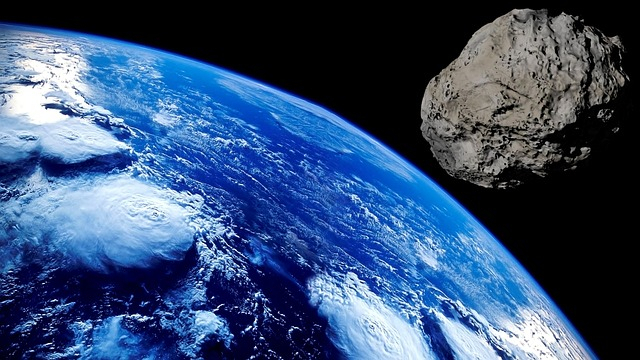A scientist from NASA recently explained the dangerous characteristics of comets. He said if the Earth gets hit by a comet, the level of destruction would be much worse than the asteroid impact that triggered the extinction of the dinosaurs.
Aerospace engineer Steve Chesley works at NASA's Jet Propulsion Laboratory to keep track of comets. He recently discussed the horrifying nature of these icy space rocks during the latest episode of NASA's "On a Mission" podcast.
Terrifying Characteristics Of Comets

Comets are known to originate from the Oort cloud, a region near the edge of the Solar System that's filled with massive space rocks. As a result, comets often have elongated orbits, which causes them to move faster than asteroids.
Aside from this, comets are more massive than asteroids, with many of them being as big as mountains or even entire cities. Due to the combination of their size and speed, Chesley noted that they could cause more destruction than asteroids.
"Because their orbits are eccentric, elongated, they are moving much faster than asteroids are when they come into the area around the Earth, and so comets pack a bigger punch," he explained. "Adding to that is the ones that are coming from the far, far reaches of our solar system, these appear not to be small. And so not only are they going faster, but they're probably larger," he continued.
Detecting Potential Comet Impacts

In addition to being larger and faster, Chesley noted that comets are harder to detect than asteroids. Since these icy space rocks come from the edges of the Solar System, spotting a comet that's on a direct collision course with Earth can be challenging.
In most cases, automated monitoring systems can only spot an approaching comet once it flies past Jupiter or Saturn. By the time it gets detected by the systems, Earth will only have about a year or two to prepare for the upcoming impact.
If this happens, Earth might not have enough time to hatch a plan to deflect or destroy an incoming massive comet. Depending on its size, Chesley said that an impact event caused by the comet could be more devastating than the asteroid strike that took out the dinosaurs. "That's a kind of hazard that's truly catastrophic for the globe, for the planet," he stated. "You think dinosaur killer. That was 65 million years ago. This is even worse."









